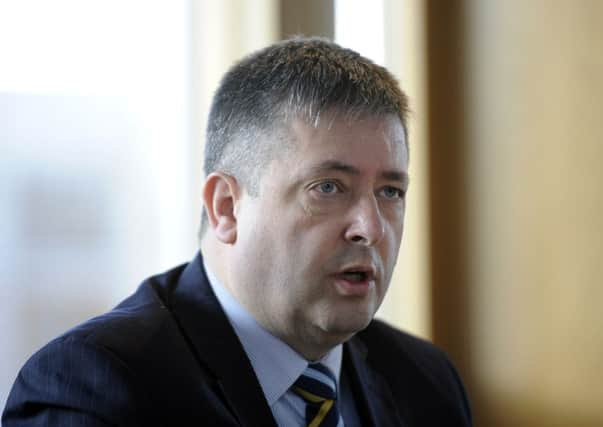Scots ‘may face rape trial on word of accuser’


It is the first insight into how sex crimes will be prosecuted after the controversial abolition of the test of corroboration.
And it shows that, despite assurances by justice secretary Kenny MacAskill, some convictions would hinge on the testimony of a single witness.
Advertisement
Hide AdAdvertisement
Hide AdLord Advocate Frank Mulholland QC was debating the Crown Office-backed move with leading QC Gordon Jackson, a critic, at an event hosted by Justice Scotland, on Thursday.
Challenged to explain the test of supporting evidence – which is proposed to replace the need for corroboration to take a case to court – Mr Mulholland cited an example from the Canadian Supreme Court of a sexual assault case involving a child.
“There was corroboration that the event took place but the only evidence relating to the perpetrator came from the child,” he said.
“In Canada, all they needed was additional evidence that showed the case was credible.”
At present, key aspects of a criminal case need to be corroborated – with evidence from at least two independent sources – including that a crime was committed, and that the accused did it. In rape cases, there needs to be corroboration of both the intercourse and the lack of consent.
Like Canada, the Dutch prosecution system looks instead for a minimum standard of supporting evidence. Mr MacAskill told the Scottish Parliament that Mr Mulholland favoured adopting a similar model.
However, Mr Jackson warned that unless that test was as tough as corroboration, it would leave Scotland more vulnerable to miscarriages of justice.
He also asked why cases were not already judged on the quality of supporting evidence, and whether the Crown Office would be tempted to bring cases on the testimony of one person when it was under pressure to get a conviction.
Advertisement
Hide AdAdvertisement
Hide Ad“If I’m frank, I’m very cynical about how that would work in practice,” Mr Jackson said. “I’m tempted to ask, if it’s such a good thing, why is it not in operation at the moment?”
Mr Mulholland again denied that the motivation for abolishing corroboration was driving up the rape conviction rate, which now stands at 56 per cent.
But he said some victims were being denied justice, while some suspects were effectively “beyond the law”.
“That is the result of the law of corroboration as opposed to supporting evidence. That is not acceptable in 2014,” he said.
The debate over corroboration has also revealed how confused Scots law’s understanding of it has become.
Even the debate’s chairman Lord Hope, the former vice-president of the Supreme Court and one of Scotland’s most highly regarded legal minds, admitted: “I don’t know what corroboration is. I would have thought it is in need of definition by someone.
“But it should be dealt with by legislation rather than judges.”
MSPs are still to vote on the matter although, if passed, it is not expected to be enacted into law until 2015 at the earliest.
SEE ALSO: